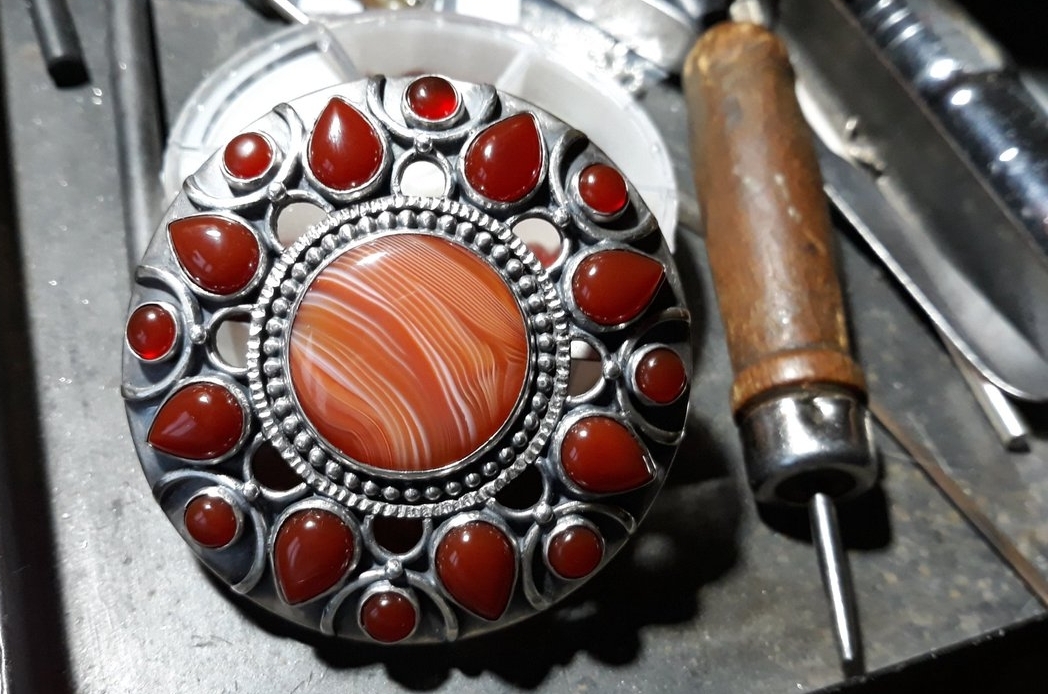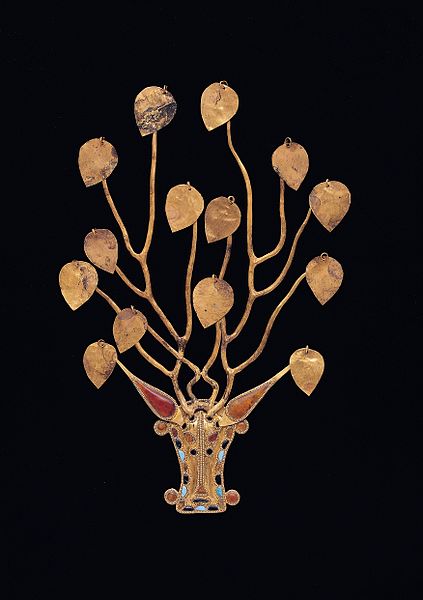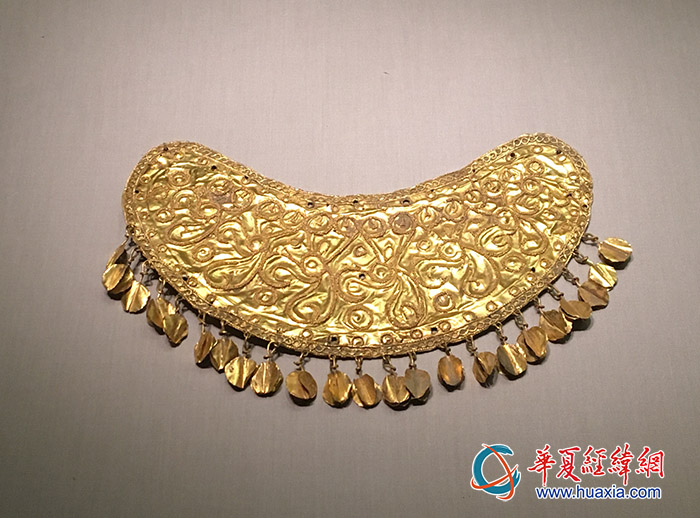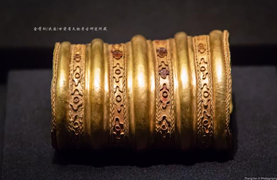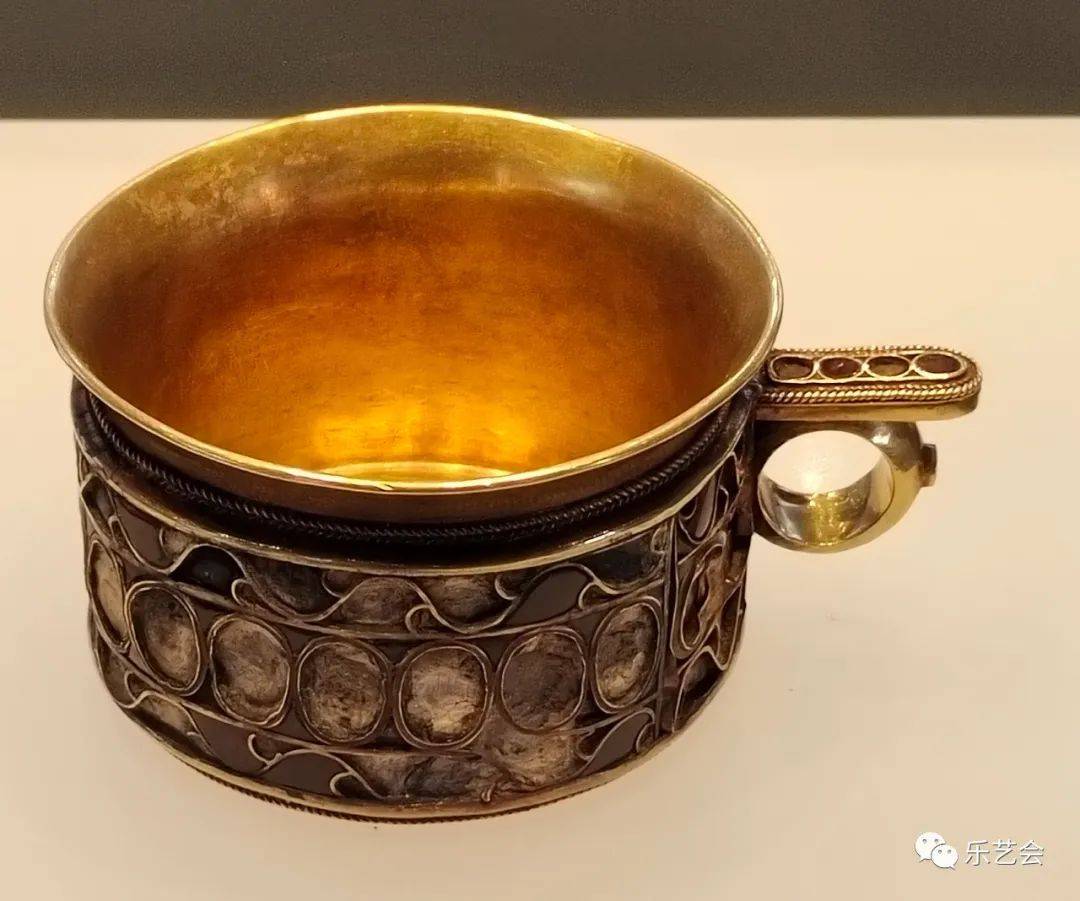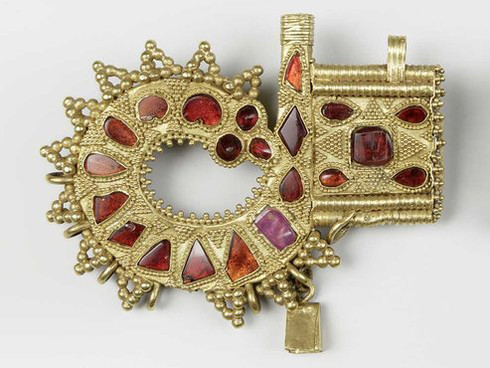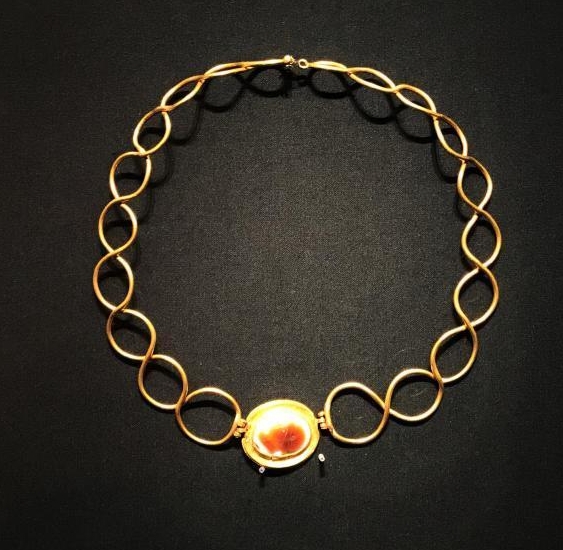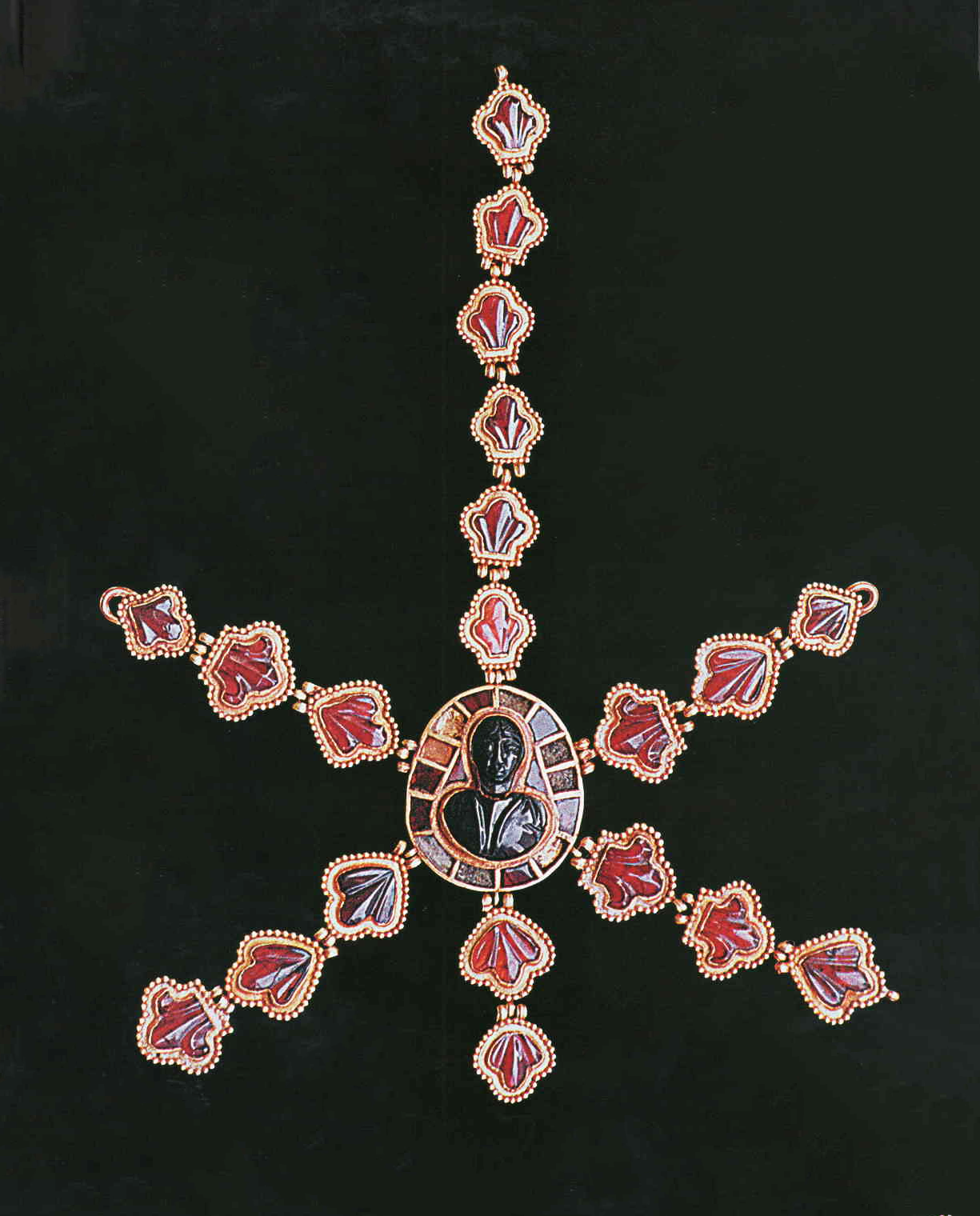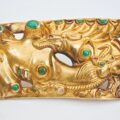Gold mask inlaid with garnets made ca. 5th–6th century, was unearthed in 1997 from the tomb of a Wusun or Western Turkic nobleman at Zhaosu Poma, Ili Prefecture, Xinjiang, China.
Collection of Ili-Kazakh Autonomous District Museum, Inv. No. 97YZS4
The mask is 17 cm high, 16.5 cm wide and weighs 245.5 grams. It was made from two pieces of gold foil, left and right halves soldered together thru the centerline. The joined foil was hammered into shape over a mold, polished and then joined with small rivets. The eyebrows, eyes, mustache and beard are made of gold straps inlaid with garnets and then riveted into place. Some of the garnets from the eyebrows and beard have fallen off. The left eyebrow has fallen off completely, leaving only four rivet holes.
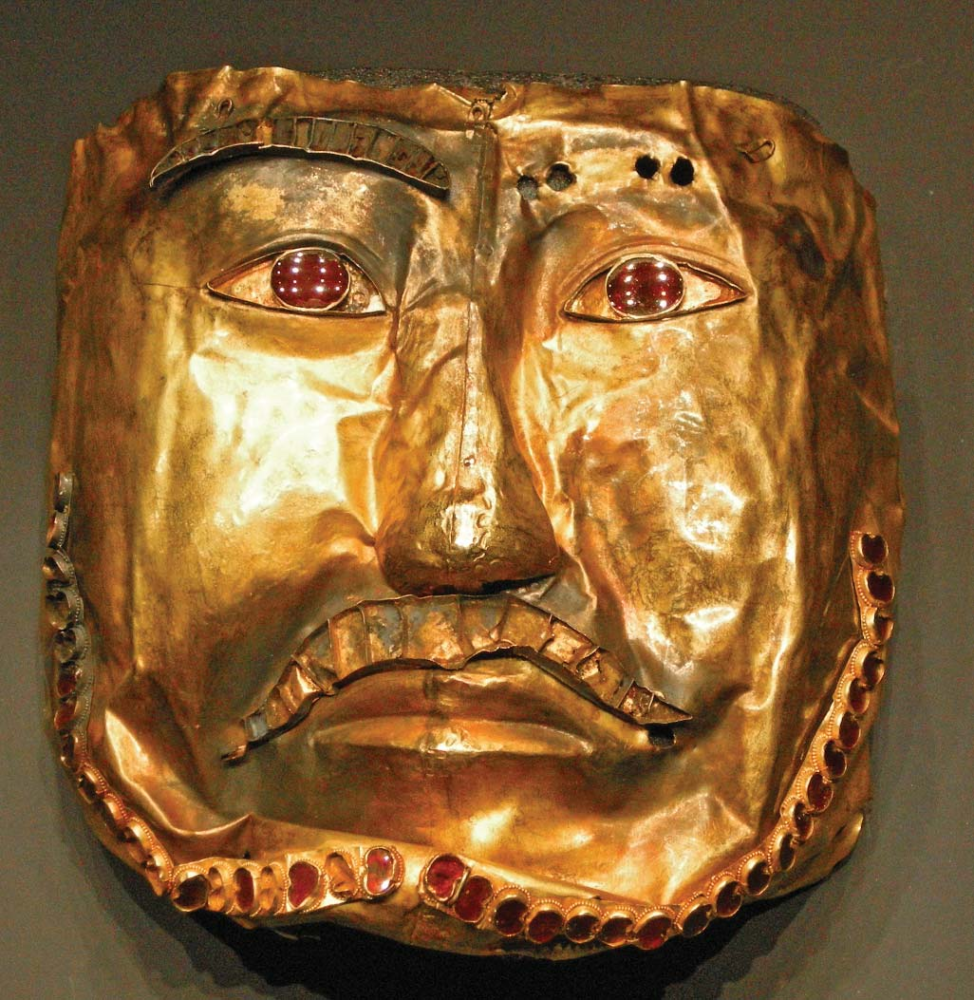
after A. Giumlía-Mair, METALLURGY AND TECHNOLOGY
The crescent [heart]-shaped garnets which form the beard of the mask are placed in the 39 cells surrounded by granulation. The beard is riveted to the cheeks with a long strip of gold about 1 cm wide, reaching the upper ear and the lower jaw.
Rubies or garnets? The large amount of garnets is characteristic for the Hunnic-type gold items.
“The researches of Périn et al. (2006) have shown that the vast majority of archaeological garnets, in particular in the 5th – 7th centuries CE, come from the metamorphic belts in Rajasthan and the east coast of India. Some examples come from Ceylon as do most of the garnets used in Roman times. Pyropes from Eastern Europe have only been employed since the 7th century CE.”
The gold mask found at Boma along with the gold bejeweled cup with a tiger-shaped handle. [Lin Ying]
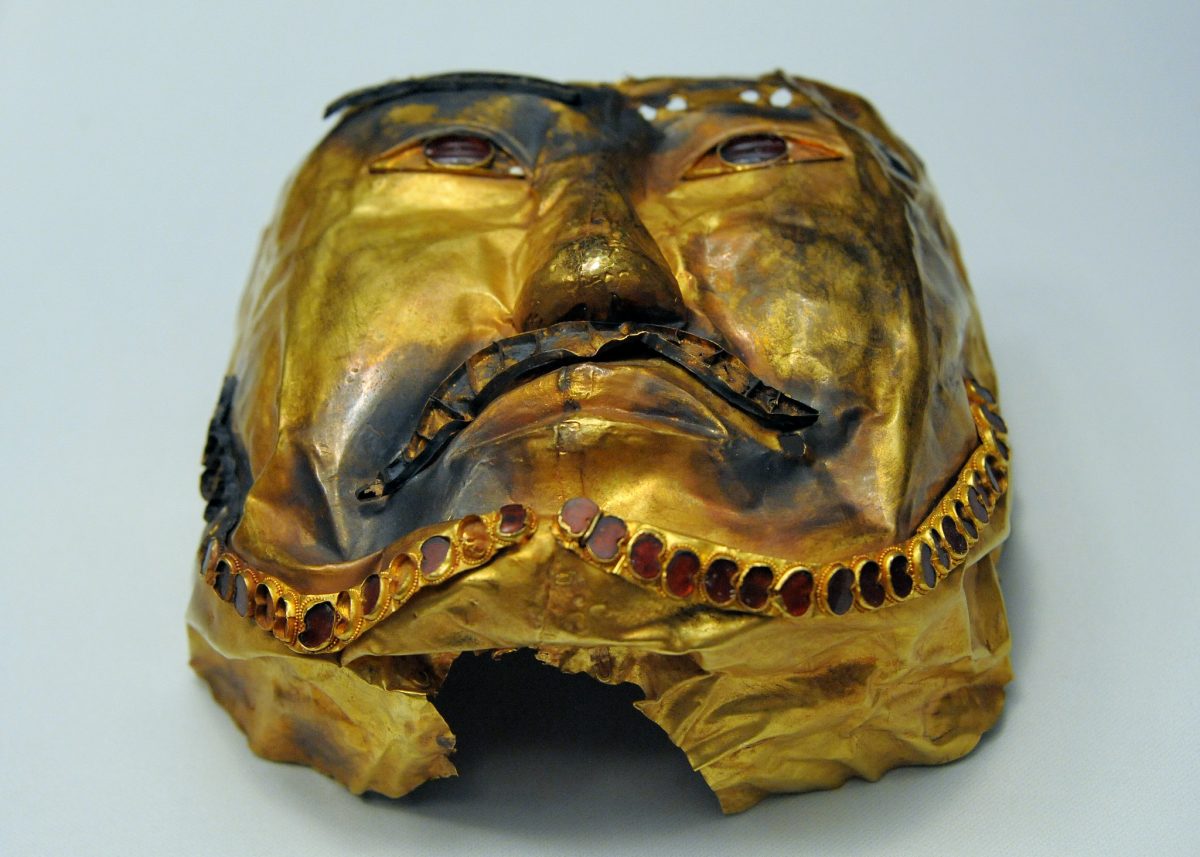
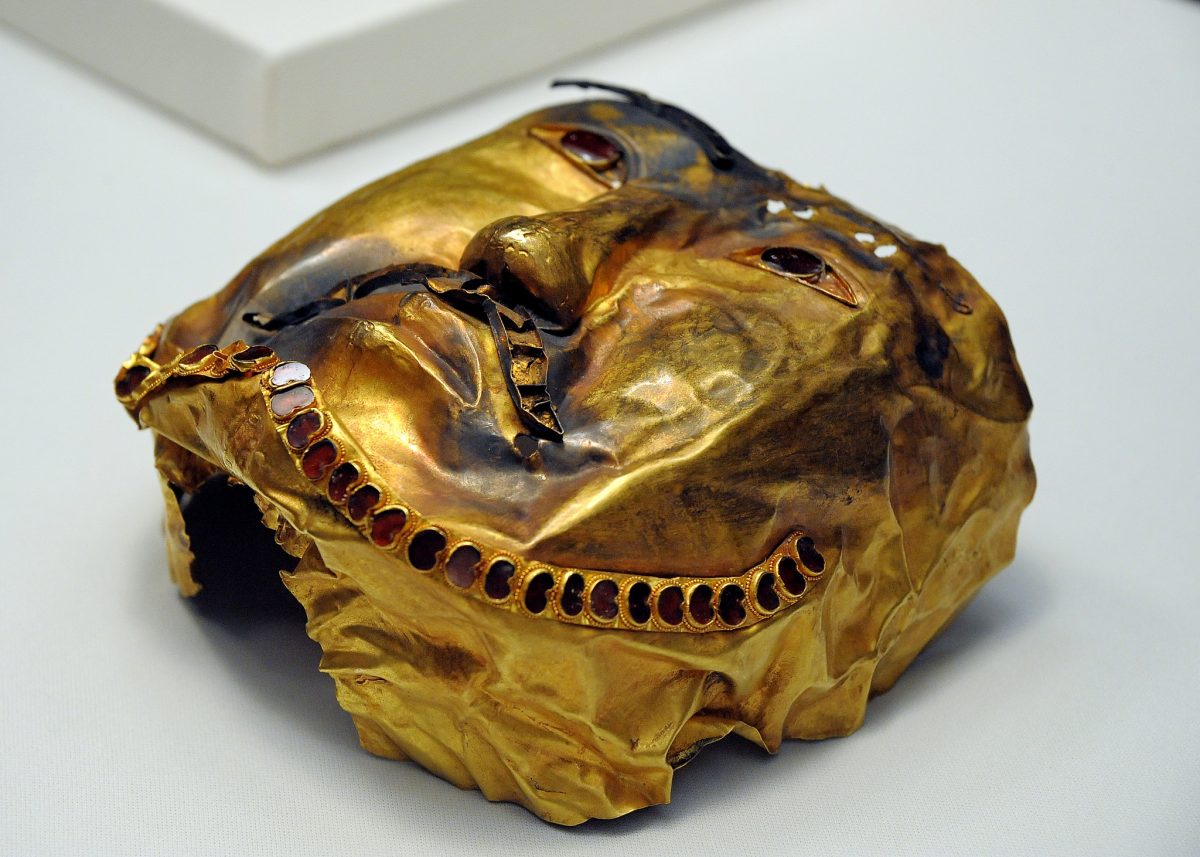
- METALLURGY AND TECHNOLOGY OF THE HUNNIC GOLD HOARD FROM NAGYSZÉKSÓS
Alessandra Giumlía-Mair http://www.silkroadfoundation.org - On the soldering techniques of gold objects from the Boma site, Xinjiang, China; Fan Yang, Thilo Rehren, Ping Kang, Kunlong Chen [pdf below]
- https://kknews.cc/n/lmjvmb9.html [wymiary]
- The Byzantine Element in the Turkic Gold Cup with the Tiger Handle Excavated at Boma, Xinjiang; Lin Ying https://edspace.american.edu
